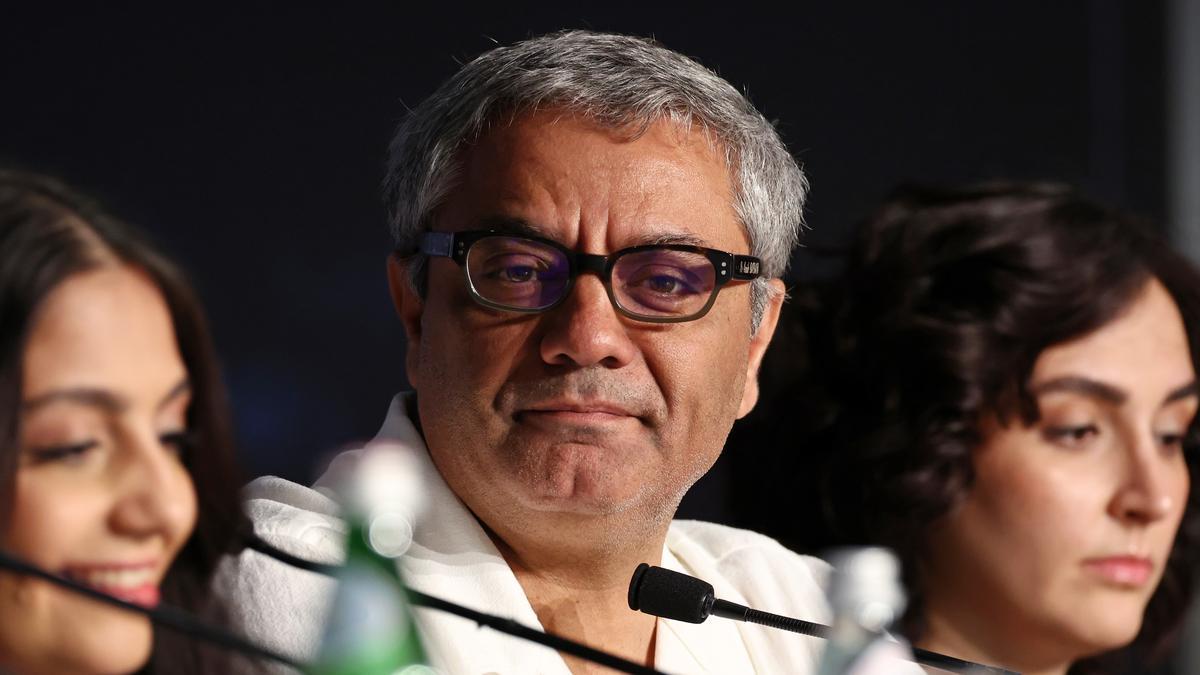
Iranian director Mohammad Rasoulof recounted the agonizing decision he had to make about his future during a press conference at the Cannes Film Festival on Saturday, sparking widespread emotional responses among attendees. Rasoulof, who was at Cannes for the premiere of his new film, “The Seed of the Sacred Fig,” shared the harrowing details of his sudden flight from Iran to avoid a severe prison sentence and flogging.
Rasoulof made headlines nearly two weeks ago when he announced his exile from Iran after being sentenced to eight years in prison and corporal punishment. At the press conference, he elaborated on his swift decision-making process. Upon receiving the dreadful news, he had just one week before his sentence was to be enforced. This revelation came amidst growing awareness by the authorities of his new film’s existence.
“I had to say to myself, well, do I want to be in prison, or should I leave Iran, geographic Iran, and join the cultural Iran that exists beyond its borders?” the director recollected, emphasizing the gravity of the situation.
The clock was ticking, and Rasoulof had only hours to decide. “It took me two hours to take the decision. I walked around, I paced around my house. I said goodbye to my plants that I love, and I have many, many plants in my house,” he revealed, his voice tinged with lingering sorrow. This heartfelt farewell to his home and prized plants underscored the emotional toll of his decision.
Faced with limited options, Rasoulof ultimately left everything behind, walking out of his house with nothing but the weight of his decision. “It’s not an easy decision to take. It still isn’t easy even to talk about it today with you,” he admitted, reflecting on the ongoing emotional burden he carries.
.
The director’s candid revelation came alongside reports from Iran’s culture minister, Mohammad Mehdi Esmaili, who stated that “The Seed of the Sacred Fig” was made illegally and that the government would intensify its crackdown on films produced without official permits.
The film itself delves into the turmoil of a court official who becomes increasingly authoritarian with his family against the backdrop of the 2022 protests following the death of Mahsa Amini. Amini, a Kurdish woman, was taken into custody by the morality police for allegedly violating dress code regulations, inciting widespread outcry and demonstrations.
“The Seed of the Sacred Fig” premiered on Friday night at Cannes, eliciting the longest standing ovation of the festival thus far. Critics have lauded the film as “mesmerizingly gripping” and “shattering,” cementing Rasoulof’s reputation as a powerful storyteller.
Rasoulof, no stranger to adversity, has faced numerous arrests and detentions over the years on charges varying from filming without a permit to “collusion against national security.” These experiences profoundly influenced the creation of his latest film.
“All these characters were inspired by real people, all the scenes come from real situations,” Rasoulof explained, adding that his past encounters have made him adept at evading the secret services. “Our life is fairly similar to that of gangsters, except we are gangsters of the cinema,” he quipped, drawing a stark yet poignant parallel during the press conference.
The director’s courageous decision to seek exile rather than endure captivity in his homeland speaks volumes about the oppressive environment faced by many filmmakers and artists in Iran. His narrative sheds light on the broader struggles of cultural expression and the sacrifices made to preserve it.
As Rasoulof continues his journey in exile, his work serves as a powerful testament to the resilience and tenacity of artists who challenge oppressive systems through their creative endeavors. “The Seed of the Sacred Fig” stands not only as an artistic achievement but also as a symbol of defiance and the enduring spirit of those who refuse to be silenced.
While Rasoulof’s future remains uncertain, his impact on the international film community and the ongoing conversation about censorship and freedom in Iran is undeniable. His story at Cannes 2024, though steeped in personal pain, ultimately reinforces the profound connection between art and resistance.












